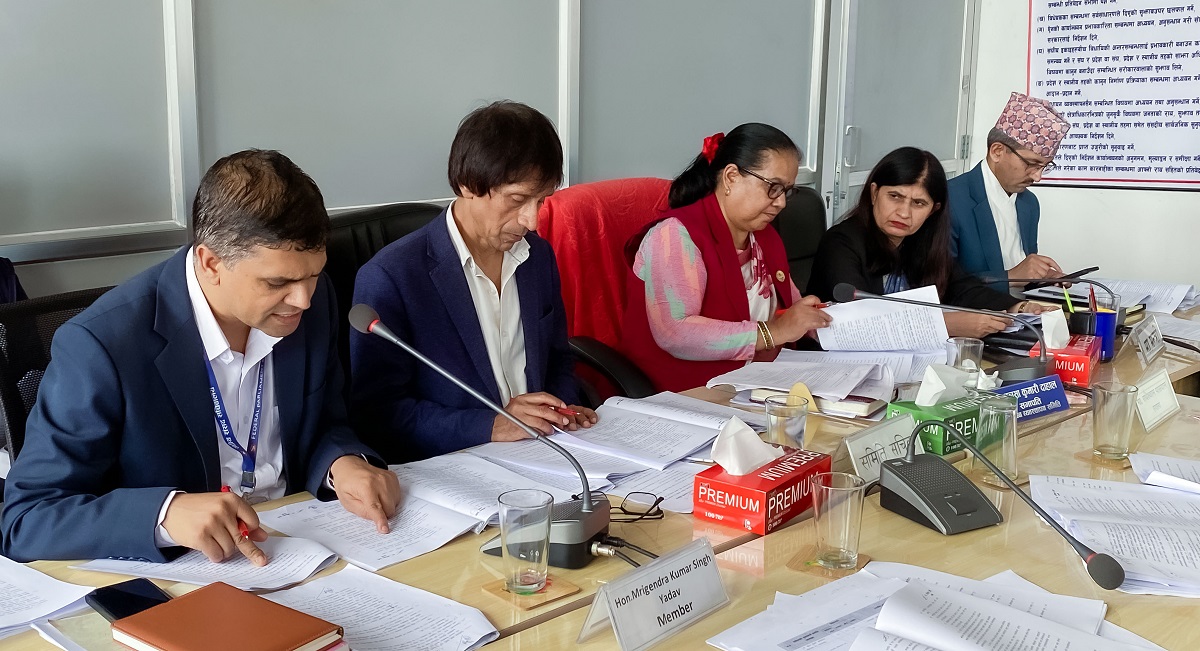The National Assembly’s Committee for Legislation Management has corrected errors made by the House of Representatives regarding the cooling-off period and also made some important amendments to the Federal Civil Service Bill.
According to the amendments, the path to diplomatic appointments has now been closed for two years for civil servants who have retired or resigned.
The committee of the National Assembly has also reversed some important decisions made by the House of Representatives in the bill.
The House of Representatives had created the position of additional secretary in the federal civil service. The National Assembly has removed the position of additional secretary, which was created to be above the joint secretary and below the secretary.
The House of Representatives had placed the additional secretary position at the 13th level to lead various departments of the government. For this, all ministries of the government would have had to conduct an organization and management study within two months of the bill becoming law.
The number of joint secretaries and secretaries would have had to be reduced to create positions of additional secretary. The State Affairs and Good Governance Committee of the House of Representatives had concluded that it would be appropriate to replace the two secretaries currently in some ministries with a secretary and an additional secretary.
However, during discussions in the National Assembly’s Committee for Legislation Management, lawmakers questioned the rationale behind the additional secretary position.
Responding to questions during the discussions, Secretary at the Ministry of Federal Affairs and General Administration, Ravilal Pantha, argued that the position was unnecessary. He said that the government had not included this provision when it introduced the bill. He stated that creating the position of additional secretary would lead to three adverse situations.
First, Pantha argued, creating the additional secretary position would increase the decision-making level, prolong processes, and affect service delivery. He also pointed out the risk that a position between the joint secretary and secretary would increase conflict.
Second, Pantha argued that creating the additional secretary position would increase the burden on the state treasury and raise costs.
Third, there would be a problem of defining responsibilities, he said.
Based on the three reasons given by Pantha, the National Assembly removed the position of additional secretary.
The House of Representatives had closed the path of entry into the the federal civil service at the joint secretary level through open competition. The National Assembly has reopened it.
The State Affairs and Good Governance Committee of the House of Representatives had argued that a person coming through open competition for such a high position as joint secretary, who is a decision-making authority, would lack experience.
However, the National Assembly said that it is not appropriate to close the path of entry into the civil service. Now, 80 percent of joint secretaries will come through promotion, while 10 percent will come through inter-level competition and 10 percent through open competition.
Similarly, the path for open entry has been opened for the Nayab Subba position as well.
The House of Representatives had opened the path for entry into the non-gazetted level only from within the service. But the National Assembly has opened the path for 10 percent of Nayab Subbas to come through open competition. Ten percent will come through inter-level competition, and the remaining 80 percent of the positions will be filled through promotion.
Likewise, the National Assembly has corrected the errors related to the cooling-off period.
The State Affairs and Good Governance Committee of the House of Representatives had included a two-year cooling-off period for appointment after retirement or resignation for special and first-class employees of the federal civil service.
However, since the provision in the bill brought by the government was not removed, the cooling-off period had become ineffective. This had opened the path to appointment for first-class and special-class employees.
Although the House of Representatives had barred retired special-class employees from constitutional appointments and government posts, it had left the path to diplomatic appointments open.
The National Assembly has barred appointments to diplomatic posts as well. This means that the path to appointments in ambassadorial roles is also closed for two years for employees who have retired or resigned.
Similarly, the National Assembly has made a two-year cooling-off period mandatory even for joining intergovernmental and development partner agencies.
The National Assembly has also amended the provision requiring civil servants to enroll in the Social Security Fund to receive health insurance.
The government had proposed making arrangements to provide health insurance to civil servants and their families by enrolling them in the Social Security Fund. The National Assembly has amended the bill to allow availing such benefits through the Health Insurance Board.
This bill passed by the National Assembly will now be sent to the House of Representatives, which will either accept or reject the amendments made by the National Assembly and send it to the president for authentication.

